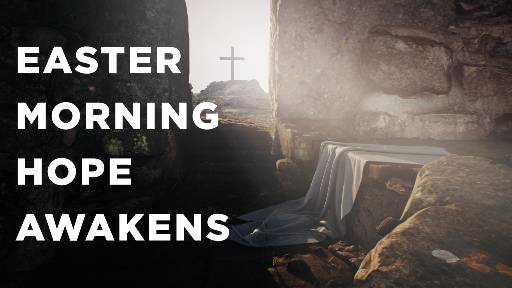-
Psalm 59 Deliver Me, O God! Series
Contributed by John Lowe on Feb 5, 2021 (message contributor)
Summary: This psalm has a footnote which reads: “To the chief Musician upon Shushan-eduth,” which tells us that it was handed over by David for use by the temple choir and marked for special use in connection with the spring festivities, that is, the Passover.
David does neither. He has recovered his sense of proportion: he is the Lord’s anointed! And there they are, senseless men, thinking they can outwit God. It is hilarious!
God in Heaven must have been laughing (the laughter of contempt) too at the utter stupidity of those unsaved men. Thus David vanquished the peril to his soul. He looked at things from the standpoint of an eternal, omnipotent, omnificent, almighty God. It was laughable, that a pack of hoodlums would think that they could kill him, the Lord’s anointed!The reason David is so confident is revealed in his testimony, “For God is my defense.” The phrase suggests both strength and peace—a tower against which all the might of the foe hurls itself in vain; a high tower so that the soul taking refuge in it is lifted far above the turmoil and the strife, and enabled to view from a vantage point of perfect safety, the violence which is futile and the victory of God.
In the psalmist’s day God is going to win against every evil individual, gang, or nation that can ever arise to defy him. Consequently, here on earth, I, in my turn, can address God as my Strength, and can then add “I will watch”; be on the lookout for Thee, knowing that I can place my whole confidence in the God who is going to win. Amazingly the word “watch” used here is that which is normally used for God’s watching over us! It is used in the sense of His keeping us safe.
Thus the first part of the psalm deals with David’s danger. The danger was real enough on the human level, but it was ridiculous when seen from the standpoint of the throne of God.
DAVID’S DELIVERANCE (59:10-17)
Suddenly he knows what to do. He gets up from his knees. “Here, Michal,” he says, “Give me that pillow. Now then, some string. We’ll make this pillow look like a human figure. There! Now then, tuck it up in bed. That’s right. Pull the sheet a little higher. When they peer in through the window in the morning they will think I’m still asleep in bed. It will give me a few more minutes and it will give you an alibi. You can say when they come to the door that I’m still in bed. Now then, let me down through the window (1 Samuel 19:11b-14). Goodbye, my dear. May God keep you. Saul won’t touch you; he just wants me.”
Much of the rest of this psalm is imprecatory. These imprecatory{1] psalms are not expressions of personal revenge, but are expressions of a zeal for righteousness. They declare a believe that God must punish wickedness and they are often prophetic in character and anticipate events at the end of the age.
It is possible that David finished this psalm after he had escaped from his foes and had time to think through more carefully the idea which had seized him in his prayer—the idea that God would laugh at those who tried to hinder and stop His own eternal plans.
10 The God of my mercy shall prevent me: God shall let me see my desire upon mine enemies.
“The God of my mercy shall prevent [go before] me; God shall let me see my desire upon mine enemies.” This statement showed David’s confidence. The hostility of his false accusers is bitter and treacherous, and yet the psalmist himself has profound confidence that God will help him. The lies of his enemies is comparable to the slander of proud pagans, but the great God sees it all and laughs in scorn. And even now, although relief has not come, in due time he will stand vindicated before his would-be destroyers. That’s why his words show his great confidence. He points out that as long as God goes before him as a fortress, he can remain impervious to the slander of others. He even has the presence of mind to realize that if God is to strike down the loudmouthed enemies all at once, the people of Israel might soon forget God’s goodness and power.

 Sermon Central
Sermon Central



